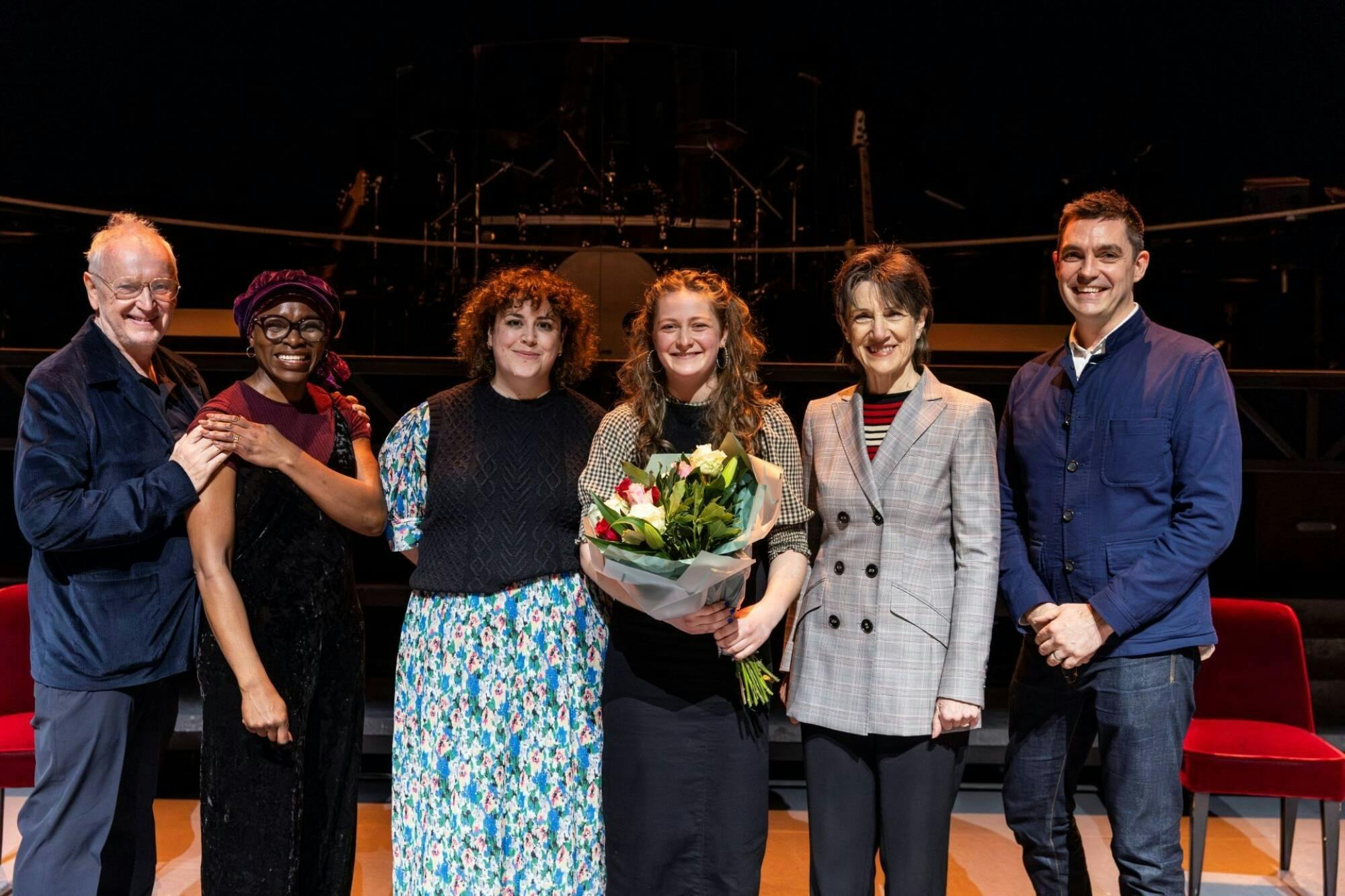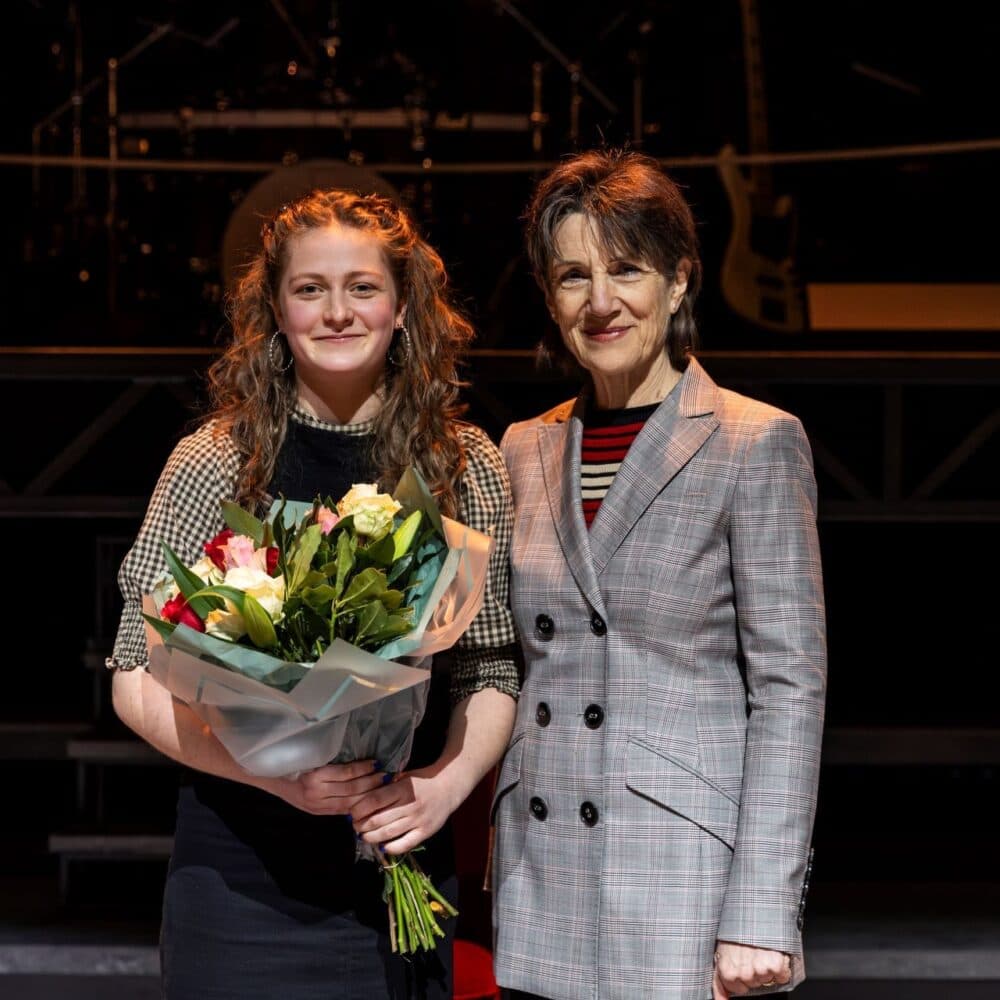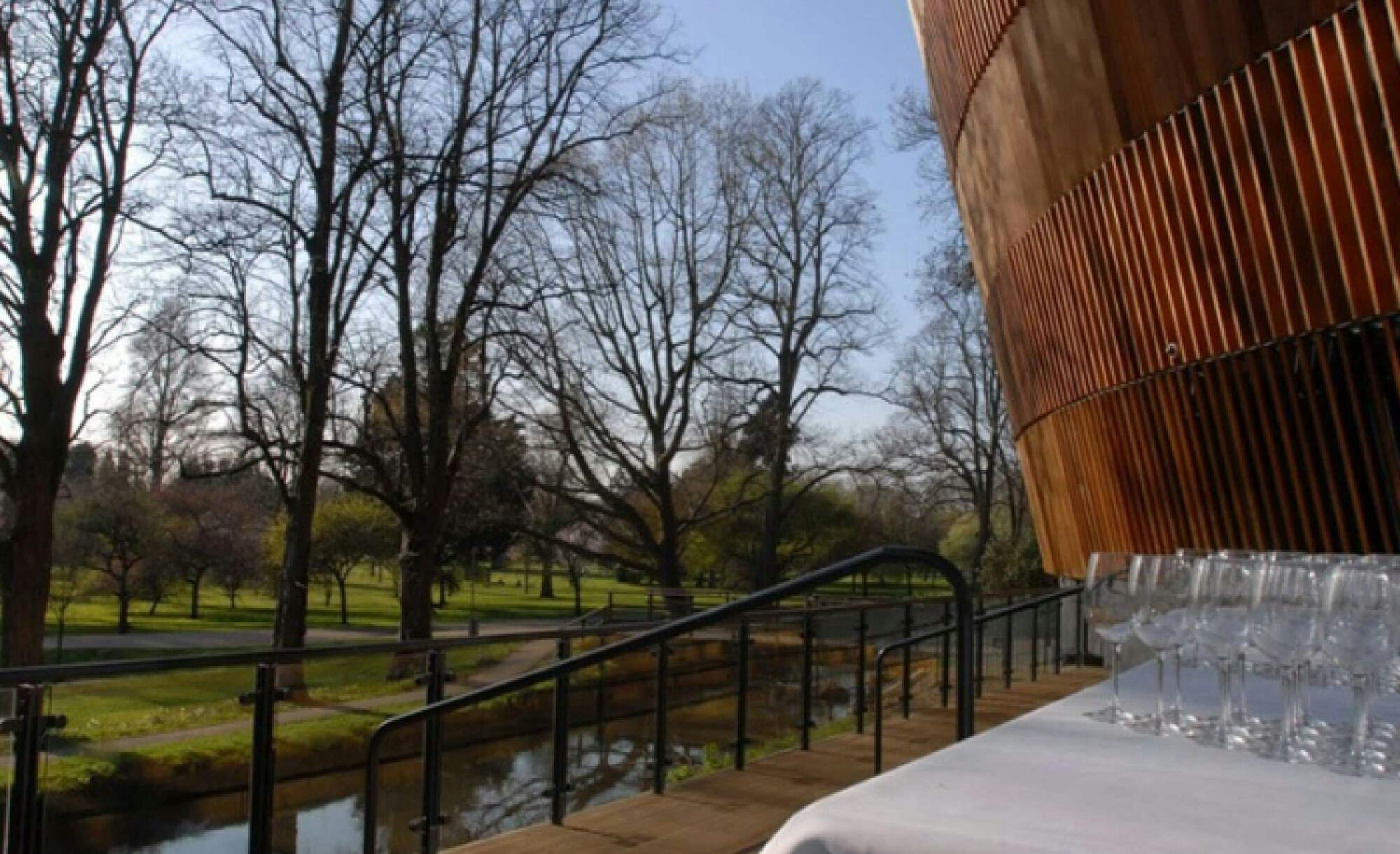

News
Harriet Walter and Jonathan Pryce judge Royal Welsh College Shakespeare prize celebrating speaking verse
The Royal Welsh College of Music & Drama’s annual Shakespeare Prize celebrates his work and speaking verse as an essential element of modern drama training.
This year’s prize was awarded to second year actor Meg Basham by head judge Dame Harriet Walter on March 18th in front of an invited audience at London’s Old Vic theatre.
‘Our Shakespeare prize acknowledges just how important working on this language is in terms of actor training and learning essential craft.
The fundamentals of verse-speaking and appreciation of language continue to remain at the core of the acting courses at RWCMD.‘Jonathan MunbyRWCMD Director of Drama Performance
The five finalists were chosen by RWCMD Fellow Sir Jonathan Pryce when he came to Cardiff to work with all the second-year acting students in the autumn term.
'I was so interested to take part in judging Royal Welsh College’s Shakespeare Prize last month.
The finalists were all so good it was hard to choose, but above prizes and judgements I was just so gratified to see a new generation of actors 'getting' Shakespeare.
Another group of actors who may have found Shakespeare inaccessible and even boring at school, discover for themselves that standing up and delivering his lines in character is about as rewarding as acting can get.
Congratulations to all the participants and congratulations to Jonathan Munby for initiating the Prize.'Dame Harriet Walter, head judge of the RWCMD Shakespeare prize
The prize final was judged by Dame Harriet Walter, RWCMD graduate and Fellow Rakie Ayola, Sean Mathias, Jonathan Munby, and Head of Voice, Alice White.
‘Of course an actor can have a wonderful career with no experience of Shakespeare, but with this extraordinary prize I believe RWCMD is saying loud and clear that it will very much remain a part of the comprehensive training they offer.
It was a joy and a privilege to watch those five talented students stand on the Old Vic stage and breathe life into such beautiful, complicated language. I look forward to working with them all in the future.’Rakie AyolaShakespeare Prize judge, RWCMD grad and Fellow
Congratulations to Meg, and to the other finalists: Alice Baxter, Malcolm Bishop, Tumba Katanda and Max Lauder
‘Shakespeare can have a reputation of being difficult to understand and not being relevant to a modern audience. But Shakespeare's words are so affecting and he conveys raw human emotion so precisely, that his words describe feelings that anyone who has ever lived can relate to.
The prize has given us all the chance to explore Shakespeare in an organic way, allowing us to choose a text we love, form our own personal connection with it, and to perform that in front of such esteemed and successful actors.
I’ve also learnt that the connection to the text is born out of connection to the character, working so hand in hand that one without the other doesn't work. The language of Shakespearean text is challenging and it takes a lot of work, but it’s so rewarding.’Meg BashamShakespeare Prize winner
Supporting Shakespeare teaching in schools and colleges
This prize was created to celebrate the work of RWCMD students and their skills in speaking verse, but it goes beyond the College’s training and is also about promoting Shakespeare externally and enabling educators in Wales to continue teaching it by supporting their work.
‘We have committed to filming a major Shakespearean production each year, which will be freely available to schools and colleges across Wales,’ explained Jonathan Munby, who directed Sir Ian McKellen in King Lear at the Chichester Festival Theatre in 2017, and again at The Duke of York’s Theatre in the West End in 2018.
‘Alongside this is a resource pack, which this year is based on our Autumn production of ‘Macbeth’ - to support students and teachers and bring Shakespeare to life in the classroom.
We hope to encourage young people to engage with Shakespeare, but also be inspired by what they see to consider pursuing a future in the creative industries.’
Photos for press here: RWCMD Shakespeare Prize 2024
Macbeth teachers’ resource: a contemporary interpretation
The ‘Macbeth’ educational resource features a film of the production, along with interviews with key members of the RWCMD cast and creative team, and is crafted in accordance with WJEC’s GSCE specification to give a relevant and enriching experience for students.
Offering a contemporary interpretation, it imagines events in the present tense, using a contemporary psychoanalytic view of the key characters and their relationships - holding a mirror to the dangers of human folly and the devastating fallout of war.
‘I really like the pack: the interviews are a great idea, and it’s also great to talk to the designers.
The pack encourages understanding of text, interpretation and uses terminology very well. I think it links really well to careers in theatre design. I teach at AS & A Level and I would use aspects of this pack for the Live Production Influence sections of the WJEC exam'Vivienne GoodmanDrama and Theatre Studies, Coleg Gwent
WJEC Moderator Beverley Roblin agreed, ‘I think this pack is excellent. You’ve rooted it firmly in the production of the play as opposed to just studying a text in class.’
The next online resource will focus on the College’s production of ‘Julius Caesar’.













